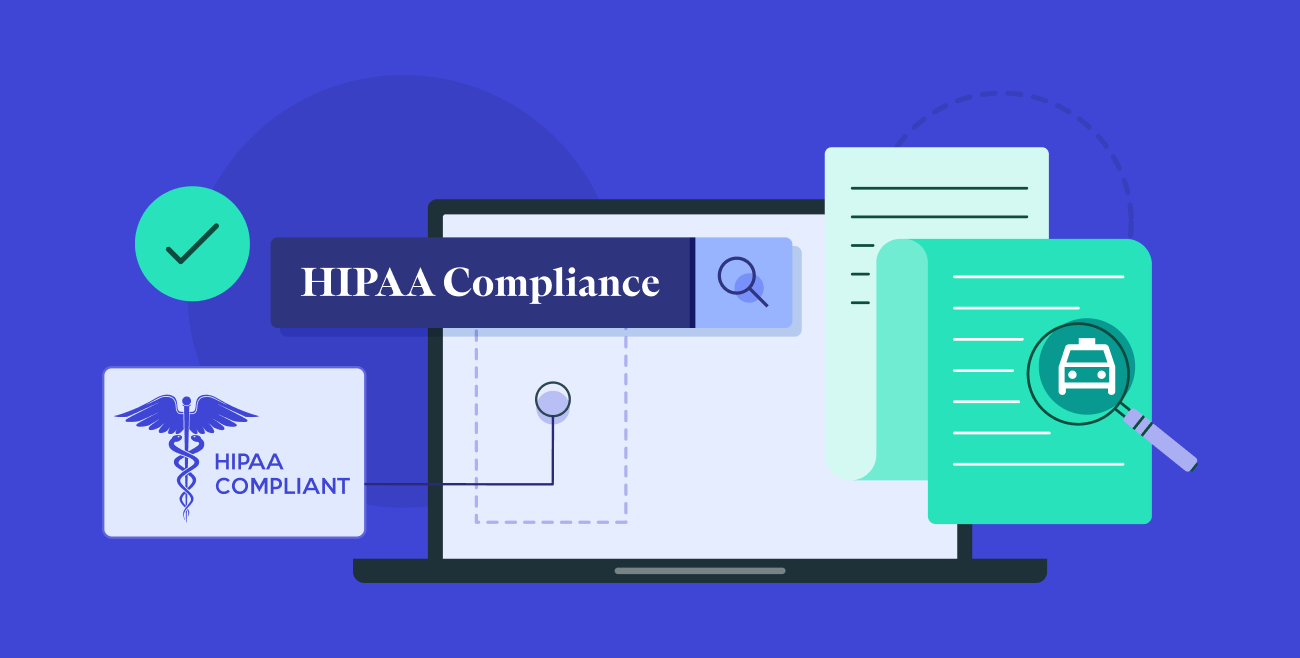
Imagine walking into your office one morning to find a legal notice and multiple fines against your non-emergency medical transportation (NEMT) business.
You compulsively skim through the countless situations that may have led to this but can’t recall any situation that would even come close.
What if we told you this was because you unknowingly violated a HIPAA regulation by discussing patient details over an unsecured phone line?
Small but crucial mistakes like this happen all too often.
In 2023, 168 million patient records were exposed, stolen, or impermissibly disclosed. This staggering statistic highlights the importance of protecting sensitive patient health information (PHI).
HIPAA compliance is essential for NEMT providers who handle patient data.
This article shows how failing to secure patient data can lead to legal consequences, loss of trust, and operational disruptions. We’ll also learn how NEMT providers can implement proper safeguards to protect sensitive information while ensuring efficient, reliable service.
Do More with Less
Handle more trips with fewer dispatchers on your payroll with Tobi.
Request a DemoUnderstanding What HIPAA Means for NEMT
The Health Insurance Portability and Accountability Act (HIPAA) is a federal law enacted in 1996 to protect sensitive patient health information from unauthorized access.
Often associated with only hospitals and clinics, HIPAA also applies to NEMT providers handling protected health information.
Since NEMT businesses routinely process patient transport schedules, medical conditions, and insurance details, it’s their responsibility to ensure data security and confidentiality.
When your NEMT business manages protected health information, you must respect the following compliance areas:
- Data Security: Using encrypted and secure databases.
- Confidentiality: Ensuring limited and only authorized personnel access to PHI.
- Breach Prevention: Training staff on HIPAA regulations, implementing monitoring systems, and setting up a response plan for potential data breaches.
Common HIPAA Risks in NEMT Operations
While you may be committed to upholding HIPAA regulations, it’s easy to violate a patient’s private details unknowingly.
NEMT providers play a critical role in patient care, but failing to follow HIPAA regulations can lead to serious legal and financial consequences.
Under HIPAA, medical professionals—including NEMT providers—must maintain the confidentiality and security of patients’ data.
Yet, even if you do everything right, you can still encounter common compliance pitfalls.
Let’s walk through some of the most common HIPAA risks in NEMT operations.
Using Unencrypted Personal Device
Have you ever used your personal devices to manage trip schedules?
Personal smartphones or tablets often lack the encryption or secure login protocols required under HIPAA regulations.
What if you lose this device or it gets stolen? In such cases, protected health information can be easily exposed and compromised.
Anyone can access patient details without encrypted devices, leading to HIPAA violations and fines.
Overhearing or Sharing of Patient Details
Imagine this: one of your drivers is discussing a patient’s medical condition with another driver while prepping for a ride.
Did you know that if overheard, this could be considered an unauthorized disclosure, leading to patient complaints, investigations, and fines?
Drivers often hear sensitive patient conversations during transport. But that doesn’t give them the right to discuss patient details or information outside of work.
Any conversation that discusses a patient’s medical details beyond professional needs violates HIPAA confidentiality rules.
Lack of Secure Storage
Trip logs and transportation records often include patient names, addresses, and medical details. Therefore, these documents fall under the confidential category and are HIPAA-protected.
What if you misplace one of these records or someone duplicates these in your absence?
If these documents are not stored securely, they can be accessed by unauthorized individuals, resulting in data breaches that require costly notifications and legal action.
Best Practices for Maintaining Compliance
NEMT providers must adopt proactive approaches to maintain compliance and stay relevant. Companies can scale their business by following the best practices for HIPAA regulations.
Train Employees on HIPAA Rules
One of the first things that NEMT fleet owners must establish is proper staff training on HIPAA rules and enforcing strict privacy policies.
Regular HIPAA training sessions for dispatchers, drivers, and administrative staff can help you secure patient confidentiality and handling of PHI in everyday operations.
Secure Communication Tools and HIPAA-Compliant NEMT Software
While training helps your staff stay on track, you can’t expect to protect patient details effectively without secure communication tools and HIPAA-compliant NEMT software.
A HIPAA-compliant NEMT software, like Tobi, securely manages trips, scheduling, insurance details, and patient records. This software can seamlessly integrate with your existing devices to encrypt stored data and ensure that all data stays protected.
Ensure Strict Access Controls
What would happen if one of your patient’s confidential medical details leaked?
Without limitations on who can access PHI, password-protected and encrypted digital records, you can face legal and financial consequences.
To ensure no data breaches happen, implement strict access controls, set up a multi-factor authentication (MFA) system, and provide role-based access for digital records.
Regularly Review and Update HIPAA Policies
Staying up to date with HIPAA regulations is necessary in the medical industry.
Conduct regular internal audits to identify and bridge compliance gaps. This way, you can address the associated risks and create an incident response plan to handle potential data breaches.
Protecting Patients and Your Business
HIPAA compliance isn’t just about avoiding fines—it’s about protecting patient trust, safeguarding sensitive health information, and keeping your NEMT operation legally sound.
Ensuring compliance strengthens relationships with healthcare partners and reinforces your reputation as a reliable provider.
You can prevent costly violations by taking proactive steps that prioritize training employees, using secure communication channels, enforcing strict controls, and regularly reviewing policies.
Is your NEMT operation fully HIPAA compliant, or are there gaps in your data protection strategy? Assess your security measures and take action to protect your business and its customers.
Are you curious how Tobi can help you run your NEMT operations more efficiently? Request a demo and experience how Tobi makes your business better at every turn.



